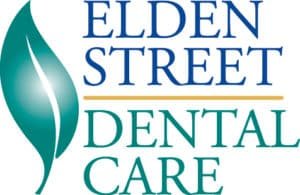Reston, VA
Cancer.
That one single word can stop someone in their tracks. Why? Because cancer is scary. Cancer has affected so many individuals and their families, including mine.
There are so many types, so many different treatments, and so many different outcomes.
Many cancers can be beat when detected early, but other kinds almost always carry a death sentence.

One of the most dangerous cancer diagnoses is the oral kind. Cancer of the mouth and upper throat collectively kill nearly one person every hour of every day of the year. Still, oral cancer doesn’t get as much attention as some of the other types, even though it’s not any less deadly.
What makes oral cancer so serious? The main problem is that it typically isn’t detected until it has reached an advanced stage, that coupled with a lack of public awareness. Although oral cancer is slow-growing, in the early stages, it rarely causes pain so it goes unnoticed…until it embeds itself deeply into surrounding tissue and begins to spread.
About half of those diagnosed with oral cancer will survive beyond 5 years. If it is found early, before it has spread to other tissues, the cure rate is 90%; unfortunately, most have spread to the throat or neck by the time the cancer is detected.
Worried about a bump or sore in your mouth that hasn’t gone away? Want to know more about the risk factors, signs, and symptoms of mouth cancer? Then keep reading.
How does one get oral cancer?
Do you smoke cigarettes, cigars, or pipes? Chew tobacco? If you do, you are at the greatest risk.
Do you drink heavily? Drinking too much alcohol is yet another risk factor, and strongly associated with oral cancer.
If you do both (use tobacco AND drink alcohol), the risk of oral cancer increases 15 times more than non-users of tobacco and alcoholic products. Yikes! Oral cancer, then, seems to be more of a “lifestyle” disease.
About 95% of all oral cancers occur in people over the age of 40. Other risk factors include those with bad dental hygiene, Human papiloma virus (HPV), poor diet, and genetic factors that predispose them to cancer.
What should you look for?
Mouth cancers usually start as a lump, bump, or patches in the mouth that do not go away. Not every lump or bump is cancerous, but it’s a good idea to get it checked out.
Some of the symptoms of oral cancer include:
- Painful sores in the mouth that don’t seem to heal
- A patch in the mouth that lasts more than a few weeks
- Difficulty swallowing, opening the mouth, and other activities that involve moving your jaw or tongue
- Soreness in the back of the throat
- Loose teeth, or tooth loss
- And, in rare cases, bad breath.
If you are experiencing at least one or more of these symptoms, it is best that you get an appointment with a professional like Dr. Queen in Reston, VA immediately. (Same day emergency appointments are available!)
To decrease your risk of oral cancer or to detect it early, stop using tobacco and consume alcohol in moderation. Regularly check your mouth for unusual sores, swelling, and areas of red or white patches. Vaccinating yourself and your children against HPV is another recommendation. And of course, see Dr. Queen regularly for an oral cancer screening from a professional.
What is an oral cancer screening?
A thorough oral cancer examination can easily be completed in less than 5 minutes. It primarily consists of inspection and palpation, the goal being early detection when there is a greater chance for a cure. Dr. Queen and most dentists will screen your mouth during a routine dental exam, preferably done at 6 month intervals.
Dr. Queen specifically employs the use of the Velscope, which aids in identifying areas of atypical cells in your mouth. This handheld device emits a harmless, bright blue light that is used to inspect the mouth and tongue and provides enhanced visualization of abnormalities that are not apparent to the naked eye.
There are more than 200 different types of cancer…and any kind of cancer diagnosis is incredibly frightening. It is unpredictable and can be difficult to detect. But one thing is certain: cancer doesn’t discriminate. It doesn’t care about your gender, race, age, or lifestyle. Everyone is at risk, though some more than others–especially in the case of oral cancer. The earlier any cancer is found, the better the outcome.
If you are worried about anything related to your mouth that you think could be an issue, put your mind at ease by calling Dr. Queen today at 703-689-2480 for your complimentary oral cancer examination.

